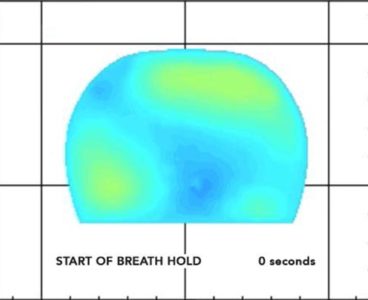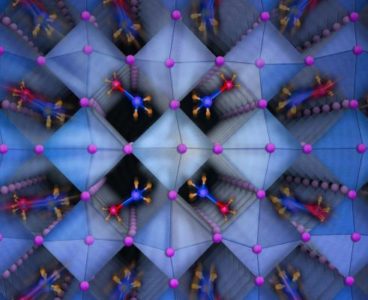Fabrics made from silkworm fibers have long been treasured for their beautiful luster and refreshing coolness. Columbia Engineering researchers have discovered that fibers produced by the caterpillars of a wild silk moth, the Madagascar comet moth (Argema mittrei), are far superior in terms of brilliance and cooling ability. Not only do the comet moth’s cocoon…
Study Reveals Milky Way Stars Being Evicted by Invading Galaxies
NIR Light May ID Breast Cancer Patients Who Will Benefit Most from Chemotherapy
A new optical imaging system developed at Columbia University uses red and near-infrared light to identify breast cancer patients who will respond to chemotherapy. The imaging system may be able to predict response to chemotherapy as early as two weeks after beginning treatment. Findings from a first pilot study of the new imaging system–a noninvasive…
Scientists Identify Brain Region in Mice that Keeps the Body from Losing its Balance
Synthetic Graphene Created in a Nanofabricated Semiconductor Structure
Researchers at Columbia Engineering, experts at manipulating matter at the nanoscale, have made an important breakthrough in physics and materials science, recently reported in Nature Nanotechnology. Working with colleagues from Princeton and Purdue Universities and Istituto Italiano di Tecnologia, the team has engineered “artificial graphene” by recreating, for the first time, the electronic structure of…
Cancer Gene Plays Key Role in Cystic Fibrosis Lung Infections
Exotic Quantum Particle Observed in Bilayer Graphene
A team led by Cory Dean, assistant professor of physics at Columbia University, and James Hone, Wang Fong-Jen Professor of Mechanical Engineering at Columbia Engineering, has definitively observed an intensely studied anomaly in condensed matter physics — the even-denominator fractional quantum Hall (FQH) state–via transport measurement in bilayer graphene. The study is published online today…
Large-Scale Study of Genetic Data Shows Humans Still Evolving
In a study analyzing the genomes of 210,000 people in the United States and Britain, researchers at Columbia University find that the genetic variants linked to Alzheimer’s disease and heavy smoking are less frequent in people with longer lifespans, suggesting that natural selection is weeding out these unfavorable variants in both populations. Researchers further find…
Ketamine Could Prevent PTSD Symptoms
New Precision Medicine Tool Helps Optimize Cancer Treatment
Electrons in Graphene Behave Like Light, Only Better
A team led by Cory Dean, assistant professor of physics at Columbia University, Avik Ghosh, professor of electrical and computer engineering at the University of Virginia, and James Hone, Wang Fong-Jen Professor of Mechanical Engineering at Columbia Engineering, has directly observed — for the first time — negative refraction for electrons passing across a boundary…
Chemists Find Key to Manufacturing More Efficient Solar Cells
In a discovery that could have profound implications for future energy policy, Columbia scientists have demonstrated it is possible to manufacture solar cells that are far more efficient than existing silicon energy cells by using a new kind of material, a development that could help reduce fossil fuel consumption. The team, led by Xiaoyang Zhu,…
‘Reprograming’ Network of Brain Cells in Mice
Neurons that fire together really do wire together, says a new study in Science, suggesting that the three-pound computer in our heads may be more malleable than we think. In the latest issue of Science, neuroscientists at Columbia University demonstrate that a set of neurons trained to fire in unison could be reactivated as much as a…










